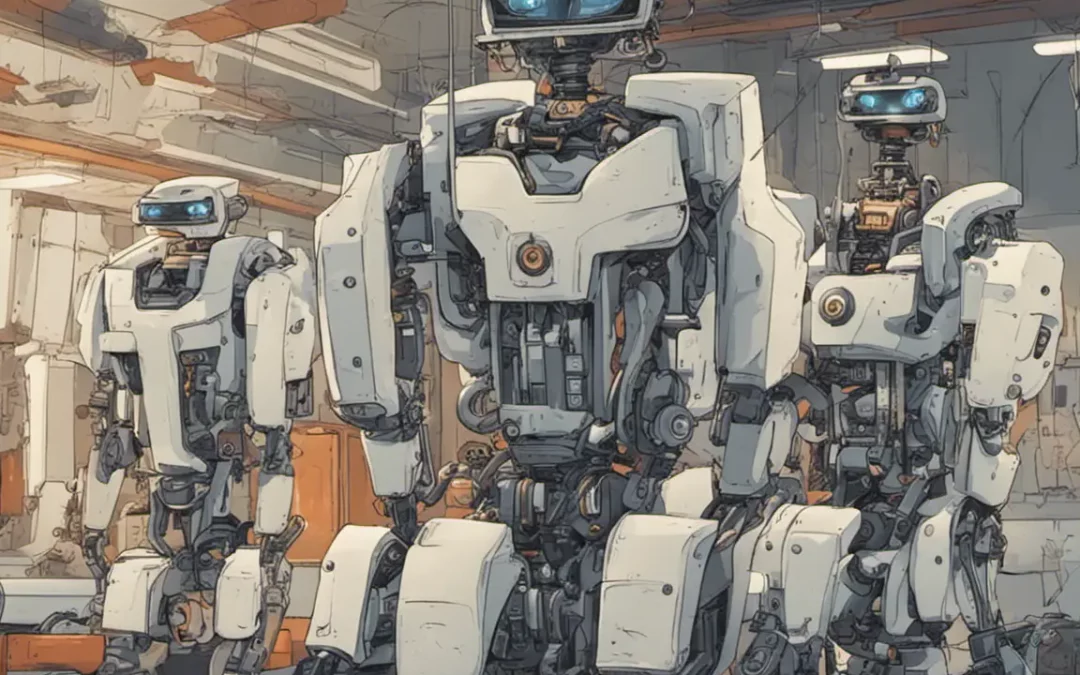The question of whether robots will take over is a complex and debated topic. The outcome depends on various factors, including how robots are designed and integrated into society, as well as the choices and decisions made by humans.
It’s important to distinguish between science fiction scenarios where robots “take over the world” and the realistic development and use of robotics and AI. While there may be concerns about job displacement, privacy, and ethical issues, the idea of robots completely taking over and subjugating humanity, as often depicted in science fiction, is not a realistic near-term concern. The future role of robots in our society will depend on responsible development and careful consideration of their impact on various aspects of human life.
not a realistic near-term concern. The future role of robots in our society will depend on responsible development and careful consideration of their impact on various aspects of human life.
Robots have swiftly emerged as valuable assets in various sectors, revolutionizing the way humans live and work. The advancements in artificial intelligence and robotics have paved the way for robots to serve and assist humanity in unprecedented ways. From healthcare to manufacturing, robots have already begun making significant contributions to society. However, as their capabilities continue to expand, it is imperative to explore the future implications of robots serving humanity. This article delves into the current applications, potential benefits, ethical considerations, challenges, and future scenarios surrounding the integration of robots in our daily lives. By understanding the trajectory of this technology, we can shape a future  where robots and humans coexist and thrive.
where robots and humans coexist and thrive.
Robotic assistance has made significant strides in improving various sectors. In healthcare, robots are proving to be invaluable in assisting with surgeries, performing repetitive tasks, and even providing emotional support to patients. In the manufacturing and industrial sectors, robots have streamlined production processes, increasing efficiency and precision. Additionally, robots are now being developed as companions and caregivers for the elderly, providing companionship, monitoring vital signs, and assisting with daily activities. These current applications demonstrate the wide range of ways robots are already making a difference in our lives.
Artificial Intelligence (AI) plays a vital role in enhancing the capabilities of robots. Machine learning and deep learning algorithms enable robots to continuously learn and improve their performance based on data and experience. Natural language processing and understanding allow robots to comprehend human commands and engage in meaningful conversations. Furthermore, advancements in perception and decision-making abilities enable robots to navigate complex environments and make informed choices. These developments in AI are propelling robots towards becoming more intelligent and adaptable, opening doors to a multitude of possibilities in the future.
decision-making abilities enable robots to navigate complex environments and make informed choices. These developments in AI are propelling robots towards becoming more intelligent and adaptable, opening doors to a multitude of possibilities in the future.
The future of robots serving humanity holds immense potential to improve our lives. One of the key benefits is the enhancement of productivity and efficiency. By taking over repetitive and mundane tasks, robots free up human resources to focus on more complex and creative endeavors. Moreover, robots excel in hazardous environments, reducing the risk to human lives. From exploring extreme depths of the ocean to working in radioactive zones, robots can tackle dangerous tasks with precision and accuracy. Additionally, robots can significantly improve the quality of life for individuals with disabilities, offering assistance and support in accomplishing daily tasks and promoting independence.

In conclusion, the future of robots serving humanity is promising. From the current applications in healthcare, manufacturing, and caregiving to the advancements in AI, robots have the potential to transform our lives for the better. However, it is crucial to approach this future with careful consideration, maintaining the delicate balance between human interaction and reliance on machines. With the right approach, robots can become valuable allies in our quest for progress and improved quality of life.

Recent Comments